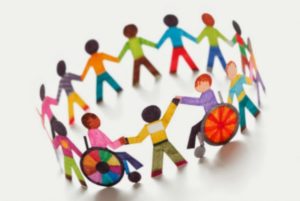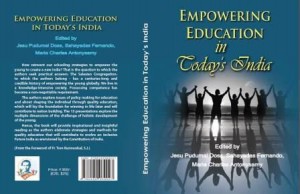 Day 1 – Monday: Download Class Notes in PDF <<Lecture 1 – An Introduction to Special Educational Needs – PDF>>
Day 1 – Monday: Download Class Notes in PDF <<Lecture 1 – An Introduction to Special Educational Needs – PDF>>
Day 2 – Tuesday: Download Class Notes in PDF <<Lecture 2 – Cognitive and Learning Difficulties- PDF>>
Day 3 – Wednesday: Download Class Notes in PDF <<Lecture 3 – Communication & Interaction Difficulties – PDF>>
Day 4 – Thursday: Download Class Notes in PDF <<Lecture 4 – Social, Emotional and Behavioural Difficulties – PDF>>
Day 5 – Friday: Download Class Notes in PDF <<Lecture 5 – Sensory and or Physical Need – PDF>>
ON PLAGIARISM: <<Paul on Plagiarism>>
Varia
Varia
The methodology of Indian education: An autoethnographic assessment
 How to cite this work:
How to cite this work:
Selvam, S.G. (2015). The methodology of Indian education: An autoethnographic assessment. In J. P. Doss, S. Fernando, & M. C. Antonysamy (eds.), Empowering education in today’s India (pp. 203-222). New Delhi: Don Bosco Youth Animation – South Asia.
Abstract
There are basically three possible approaches in scientific enquiry.[1] The third-person approach in science is informed by a positivist epistemology where truth is said to be what can be objectively observed. Physical sciences and life sciences adopt this methodology and derive their conclusions by means of measurements and statistics. Numbers offer an advantage of objectivity. The second-person approach believes that objective observation is not really possible, since the observer always causes their shadow on the observed. Hence truth is actually a construction of the interaction between the observer and the […]
Using the Internet for your Research
Using the Internet for your Research
(Over) simplified hints from Selvam
What is a URL?
Uniform Resource Locator
http://en.wikipedia.org/wiki/Uniform_resource_locator
Wikipedia.org
It is a very useful resource to find simple definitions and explanation for almost anything under the sun. But do not copy and paste.
Be an intelligent scholar. Use the references that are used in the article.
Important: go down to the reference list and see if there is any attached pdf file and click on it.
Google.com
Today, teacher is no more the expert! Google everything!
However, as a smart scholar you should know how to make out what is a scholarly material and what is not. Try not to cite material from webpages or blogs – these are just opinions. But internet has a plenty of scholarly material.
Often scholarly files (journal articles and book chapters) are in pdf (Portable Document Format).
Step 1: To get pdf files out of the internet, google your search word + pdf
Example: mungiki pdf
Step 2: […]
Role of narratives in conflicts
 Conflicts: A Social Psychological Perspective
Conflicts: A Social Psychological Perspective
with special focus on the role of Narratives
Rev Dr Sahaya G. Selvam
Tangaza University College, Nairobi
Note: These notes are meant for class discussion
Social Psychology is a branch of psychology (as well as of sociology) that focuses on the cognitive (thinking), affective (feeling) and behavioural dimensions of human beings in their interaction with each other – in groups and societies.
Activity 1: Ask in pairs: “Who are you?” x 10 times
One of the foci of Social Psychology is how individuals draw their identity from their affiliation to groups (see Henri Tajfel and John Turner). There is a basic need in human beings to belong – this need is met by individuals being part of groups that they find themselves in or choose to be in: Ethnic groups, religions, clubs, […]
Open Source Online Journals
RELIGIOUS STUDIES
Journal of Religion & Society
Journal Religions and Ideologies
PSYCHOLOGY
International Journal of Psychological Studies
A List of free online journals
MANAGEMENT STUDIES
Journal of Human Resources Education